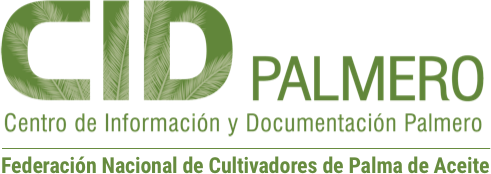| dc.creator | Valenzuela, Alfonso | |
| dc.creator | Morado, Nora | |
| dc.date | 2007-01-01 | |
| dc.date.accessioned | 2020-07-25T11:19:14Z | |
| dc.date.available | 2020-07-25T11:19:14Z | |
| dc.identifier | https://publicaciones.fedepalma.org/index.php/palmas/article/view/1228 | |
| dc.identifier.uri | http://repositorio.fedepalma.org/handle/123456789/139855 | |
| dc.description | Fats and oils, also identified as fats, are the main components of edible lipids. The technological and the nutritional knowledge of fats and oils is at present very well developed, however the utilization of fats as foods or for domestic uses was initiated many centuries ago. The named Industrial Revolution represented a significant quantitative development in the knowledge of fats and oils. The French Eugéne Chevreul was probably the first scientific who studied the properties of fats and oils. Another French citizen, Jean-Baptiste Dumas together with the German scientist Justus Liebig, was the first researchers who intended to explain the nutritional properties of fats. The French pharmacist Hypolitte Mége-Mouriés was involved in the preparation of the first fat emulsion which resembles margarine. The German scientist Franz Knoop described the biochemical process known as beta oxidation of fatty acids. George and Mildred Burr, both American scientists, were the first to describe the essentiality of fatty acids, and the English Haslam and Chick independently isolated the first lipoproteins. The present description review, although not exhaustively, the main discoveries about the nutritional role of fats and oils | en-US |
| dc.description | Las grasas y aceites, también identificadas como materias grasas, constituyen la forma mayoritariamente comestible de los lípidos. En la actualidad, muestran un gran desarrollo tecnológico y nutricional, aunque su utilización en la alimentación y en usos domésticos comenzó hace muchos siglos. La Revolución Industrial significó un salto cuantitativo en el conocimiento de las materias grasas. El francés Eugéne Chevreul fue el iniciador de la investigación científica en grasas y aceites. Jean-Baptiste Dumas en Francia y Justus Liebig, en Alemania, dieron origen a los primeros conceptos sobre la importancia nutricional de las grasas y aceites. Hypolitte Mége Mouriés desarrolló un procedimiento para obtener un producto similar a las actuales margarinas. El alemán Franz Knoop fue el descubridor del proceso bioquímico de metabolización de los ácidos grasos conocido como beta oxidación. Los norteamericanos George y Mildred Burr descubrieron la esencialidad de los ácidos grasos y las investigaciones de los ingleses Haslam y Chick, en forma independiente, caracterizaron las primeras lipoproteínas. Este trabajo resume en forma no exhaustiva los primeros descubrimientos relacionados con el rol nutricional de las grasas y de los aceites. | es-ES |
| dc.format | application/pdf | |
| dc.language | spa | |
| dc.publisher | Fedepalma | es-ES |
| dc.relation | https://publicaciones.fedepalma.org/index.php/palmas/article/view/1228/1228 | |
| dc.rights | Derechos de autor 2017 Revista Palmas | es-ES |
| dc.rights | https://creativecommons.org/licenses/by-nc-nd/4.0 | es-ES |
| dc.source | Revista Palmas; Vol. 28 Núm. 3 (2007); 63-71 | es-ES |
| dc.source | 0121-2923 | |
| dc.subject | grasas | es-ES |
| dc.subject | aceites | es-ES |
| dc.subject | lípidos | es-ES |
| dc.subject | ácidos grasos | es-ES |
| dc.subject | lipoproteínas | es-ES |
| dc.subject | nutrición humana | es-ES |
| dc.subject | historia | es-ES |
| dc.title | Fats and oils in the human nutrition : an historical overview | en-US |
| dc.title | Las grasas y aceites en la nutrición humana : algo de su historia | es-ES |
| dc.type | info:eu-repo/semantics/article | |
| dc.type | info:eu-repo/semantics/publishedVersion | |


